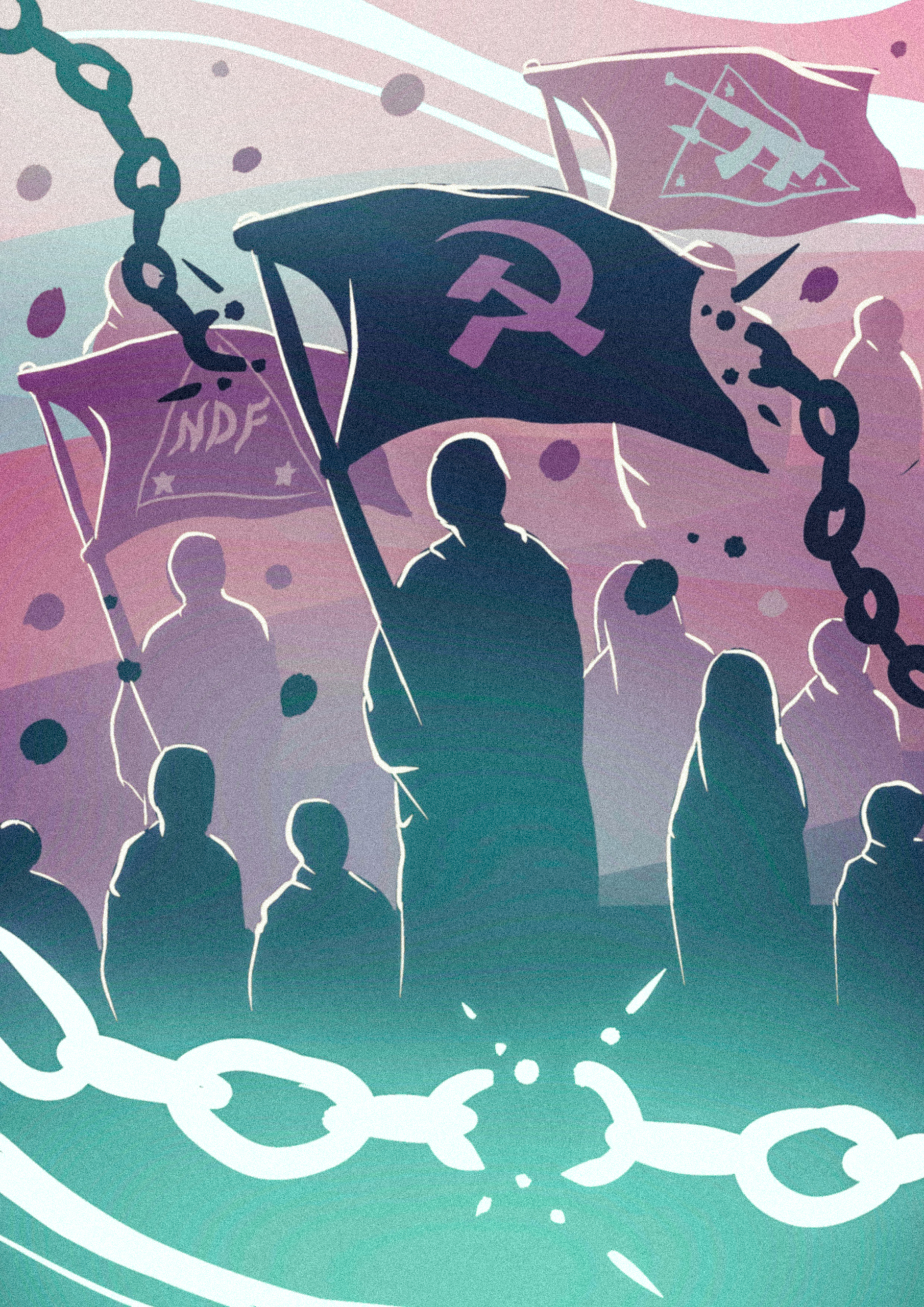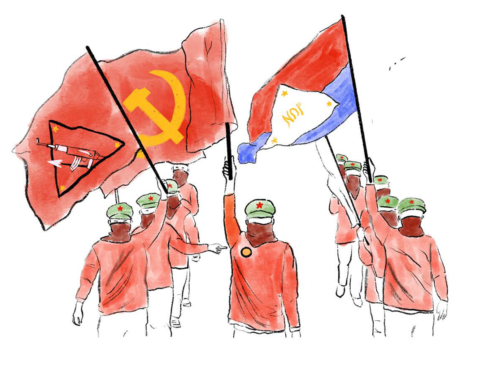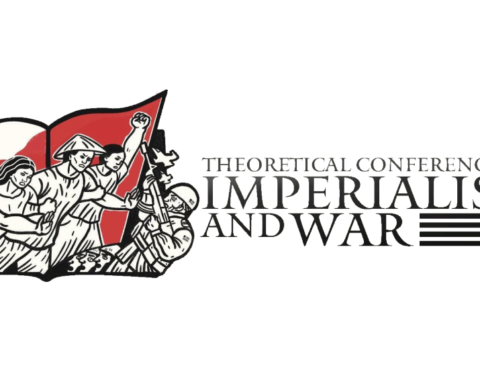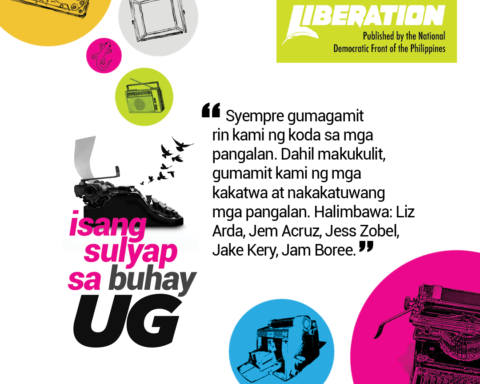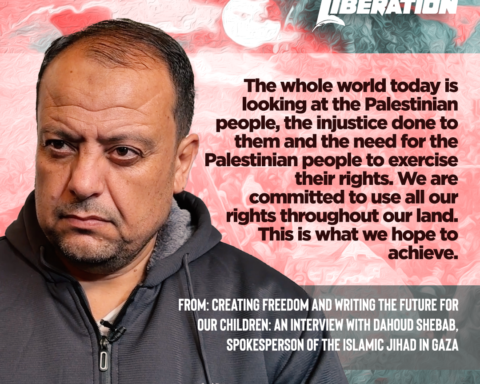- The CPP-NPA-NDFP is not one and the same organization.
These are three distinct organizations, even as they have the same political objective of winning the people’s democratic revolution in order to overthrow the semifeudal and semicolonial system in the Philippines and set up a socialist system.
- The NDFP is the umbrella, the underground alliance, of all existing revolutionary organizations that are pursuing the national-democratic line with a socialist perspective.
Revolutionary organizations from various classes and sectors—such as the Revolutionary Council of Trade Unions for workers, Kabataang Makabayan for the youth, Makibaka for women, Christians for National Liberation for religious people, KAGUMA for teachers, MASAPA for health workers and professionals, and of course, the CPP and the NPA. These organizations unite to pursue the NDFP’s 12-point program that contains the legitimate aspirations of the Filipino people for peace, prosperity, and a just society.
3. The CPP is a member of the NDFP at the same time the leading organization in the alliance.
The CPP is the most advanced revolutionary organization within the alliance in terms of carrying out the theory and practice of people’s war in the Philippines. Other member-organizations look up to the CPP for theoretical guidance, lessons and experiences, dedication, and perseverance in the struggle.
4. The NPA, which is under the absolute leadership of the CPP, is the only armed revolutionary organization in the NDFP.
The NPA is the main revolutionary organization within the NDFP, composed largely of peasants who are most desirous of resolving the land problem which is at the root of the armed revolution. The NPA carries out armed struggle guided by the principle that at all times, politics must rule the gun.
- The highest governing body of the NDFP is the General Assembly (GA) composed of the representatives from each member-organization. A National Council is elected from among the representatives in the Assembly, or in absentia, as the situation may require.
Security restrictions have limited the regular meetings of the General Assembly. The National Council and/or its Executive Committee may take over to issue calls and implement decisions upon consultation with member organizations.
- Decisions in the NDFP are through consensus.
Each member-revolutionary organization is self-acting and autonomous. Thus, within the NDFP decisions are made through consensus and become binding to all member-organizations. Outside of the decisions of the NDFP the member-organizations continue to carry out their own programs for the masses they served.
- Contrary to lies peddled by the reactionary state, legal mass organizations are not members of the NDFP.
Certain legal mass organizations may be progressive and may call themselves national-democratic, too. However, they operate under the State’s jurisdiction and bound by its rules, hence they carry out their objectives through popular protests or unarmed struggle. But the NDFP, being outside of the legal system, openly calls for armed revolution and sets up its own people’s democratic state. This is what differentiates the NDFP from legal mass organizations. In short, neither sympathy nor seeming likeness nor respect for the NDFP is synonymous to membership.
- Neither are legal mass organizations “fronts” of or “infiltrated” by the NDFP forces.
To “infiltrate” is to put malice on the word. Revolutionaries are practically everywhere as they are common people. They have as much right as anyone to become a legitimate part of any legal organization for as long as they believe in its constitution and program. The NDFP does not make “fronts” of legal organizations. Calling these organizations as “fronts” disrespects the right of the masses to organize and seek redress of grievances and could be made an excuse to set the stage for their repression by the state.
- Membership in NDFP organizations is individual, informed, and voluntary.
No one is ever forced to join an NDFP-allied organization. If so, that would have already been self-destructive and would not make the NDFP reach its 50th year. Individual recruits or invitees to any of the member-organizations are well-informed of principles and program before they even pledge membership to the organization of their choice. Leaving the organization is likewise voluntary. As NDFP member-organizations operate in secret especially in the cities, the true identities of individual members are hidden from the enemies. In the countryside where revolutionaries operate freely NDFP allied organizations and their members are usually known by the people.
- The NDFP serves as framework for establishing revolutionary organs of governance.
These organs of political power (OPP)—at the municipal, district, provincial levels—are the seeds of the people’s democratic government (PDG). Even at this stage, these organs of political power already administer justice and implement social services for the masses in guerrilla zones. The NDFP represents the organs of political power in establishing proto-diplomatic relations with states and other international agencies. It also represents the OPP in peace negotiations with the GRP since 1986.
- The NDFP definitely wants peace.
The entire NDFP has been painted by state forces as “terrorist”. Despite the attacks and demonization, the NDFP has never turned its back on the peace talks that it has committed to pursue. Now on its 50th year, the NDFP continues to respond positively to the sustained calls—by various peace advocacy groups, institutions, organizations, and known personalities—for resuming and completing the GRP-NDFP peace talks towards attaining a just and lasting peace in the country. (Vida Gracias, Pat Gambao) ###

